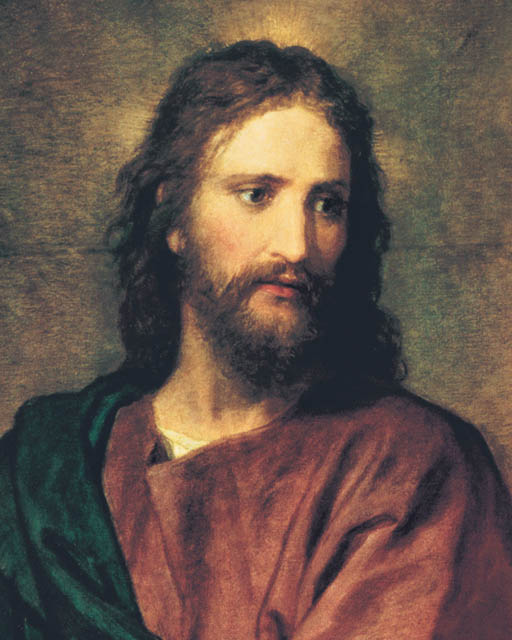In my last blog, I observed that balance between being too strict or too lenient is first found by giving our children knowledge. We help them know their own strength and power – they are children of God with unlimited potential. They can do anything! We teach commandments to show them the most efficient path to the goal. We teach them to follow the Savior as a mentor and example. We teach them to listen to the Holy Ghost who can give personal guidance and inspiration.
 Once they have correct knowledge, our children are ready to choose. In fact they usually sound like the famous words of Founding Father, Patrick Henry:
Once they have correct knowledge, our children are ready to choose. In fact they usually sound like the famous words of Founding Father, Patrick Henry:
“Give me liberty or give me death!”
Why is it such a strong feeling? In the Church of Jesus Christ of Latter-Day Saints, known as the Mormons, we are taught:
“God gave to man part of his divinity. He gave man the power of choice, and no other creature in the world has it. So he placed upon the individual the obligation of conducting himself as an eternal being. You cannot think of any greater gift that could come to a man or woman than the freedom of choice. You alone are responsible, and by wielding and exercising that freedom of choice, you grow in character, you grow in intelligence, you approach divinity, and eventually you may achieve that high exaltation. That is a great obligation. Very few people appreciate it. The roads are clearly marked—one offering animal existence, the other life abundant…Freedom of choice is more to be treasured than any possession earth can give. It is inherent in the spirit of man. It is a divine gift. … Whether born in abject poverty or shackled at birth by inherited riches, everyone has this most precious of all life’s endowments—the gift of free agency; man’s inherited and inalienable right.” David O. McKay (“Chapter 22: Agency and Responsibility,” Teachings of Presidents of the Church: David O. McKay, 205)
What an amazing gift! The need for choice and the opportunity to exercise that choice is absolutely essential for growth.
Agency is the impelling source of the soul’s progress. It is the purpose of the Lord that man become like him. In order for man to achieve this it was necessary for the Creator first to make him free. David O. McKay (“Chapter 22: Agency and Responsibility,” Teachings of Presidents of the Church: David O. McKay, 205)
Most of us know our children need choice, but how do we go about it? We want our children to obey not because obedience is the ultimate goal, but because progression is the ultimate goal. How do we help them keep choice on the right track?
What is the cycle of progression our Father in Heaven gives to us?
1. He gives us commandments and asks us to obey them. (Keep in mind He is a perfect leader and has given a perfect law.)
2. He lets us choose.
3. He gives us time.
4. He asks us to check in for review.
We’ve already discussed the first two steps to this cycle. The next two are just as important.
Time
Our Creator gives us time to choose. He gives us the gift of time before rewards or punishments (“consequences”) are given. Here’s why, even for rewards:
“If joy and peace and rewards were instantaneously given the doer of good, there could be no evil—all would do good but not because of the rightness of doing good. There would be no test of strength, no development of character, no growth of powers, no free agency, only satanic controls.” Spencer W. Kimball “Chapter 2: Tragedy or Destiny?,” Teachings of Presidents of the Church: Spencer W. Kimball, (2006),11–21
Most parents I know have a constant internal debate. Do I come up with a list of rewards or punishments for bad behavior? When do we let natural consequences set in and when do we create consequences?
Like the science experiments with mice where they get a zap or reward by going on the right path, immediate consequences can create conditioned behavior. Time is opportunity for growth. If we fail to give our children time in their choices, we can think that we are enforcing “consequences”, but we are really just conditioning behavior and conditioned behavior is immature behavior.
Our Creator gives us time to see the good and bad effects of choice for ourselves. These choices help us to reason, to process information, to weigh cause and effect. Time helps us mature. If we received an immediate response from Him after every action, our growth would be sabotaged.
What He usually does is wait until He sees patterns or halted progression before He acts. He then knows what we are really going to do if left on our own.
When I noticed this pattern, I decided to try it at home. I told my 6-year-old son that he could stay home with his older brother if he did his homework while I took another child to an activity. When I got home, the homework was not done and my son was playing at a friend’s house. The following week I told my 6-year-old that he could try again – that he should finish his homework before he went out to play. The second time, I found him watching a show, his homework not finished. I tried a third time with similar results. We had a conversation about what was preventing him from finishing his homework. One was the strong lure of friends to a six-year-old. The second was his need of more support with homework. The next week, he came with me and we finished it together in the car.
Review
One tool our Father in Heaven uses to keep choices on the right path is constant review. He has commanded us to pray. In the Sermon on the Mount, the Savior teaches us how to pray (Matthew 6).
There are many references to prayer in the scriptures. We can find there an entire list of the many reasons to pray, ways to pray and outcomes of prayer. (TG)
Prayer is the Progress Check. Prayer is His feedback system for choice. He can tell us if we are on the right track, how to stay on track or how to get back on track. We can share our struggles, our sorrows and our joys and accomplishments in prayer.
Th Progress Check method also works with our children. We can give them time, but can also meet with them regularly. The time we allow between Progress Checks may depend on their age or maturity level. It may be hours, days, weeks or months. But we can always meet with them to ask them:
1. What goals do you have? What are you trying to do?
2. What did try?
3. How is that going?
4. What worked?
5. What didn’t work?
6. How can I help you?
This feedback loop helps keep tabs on the choices so good choices can be encouraged and bad choices can be flagged.
All of this said, I believe that parenting around choice is much easier said than done. In theory, it sounds easy. In reality, it is very tough to give kids great opportunity for choice. It is hard to give them the knowledge they need. It takes time and great effort to train them. It takes self-control to give them the ability and time to choose, especially when the behavior is bothering you or someone else in the family. It takes personal and family organization to do regular reviews.
Sometimes we let fear take over. What if they choose badly? Out of the best possible intentions, our fear can drive us to skip these important steps or take over for them. We want them to be happy. We want them to avoid pain and suffering. It takes great faith to know that if we follow a heavenly example, it will turn out all right in the end. Sometimes it is not their challenge, but ours to learn the elements of choice. Take heart, keep trying. We can do this if we too follow His guidelines.
There is a final element of free will, or choice. The last step is responsibility. We have heard that we get to choose our actions, but don’t get to choose the outcomes. My next blog will responsibility that comes with choice and will talk about right conditions for consequences.


